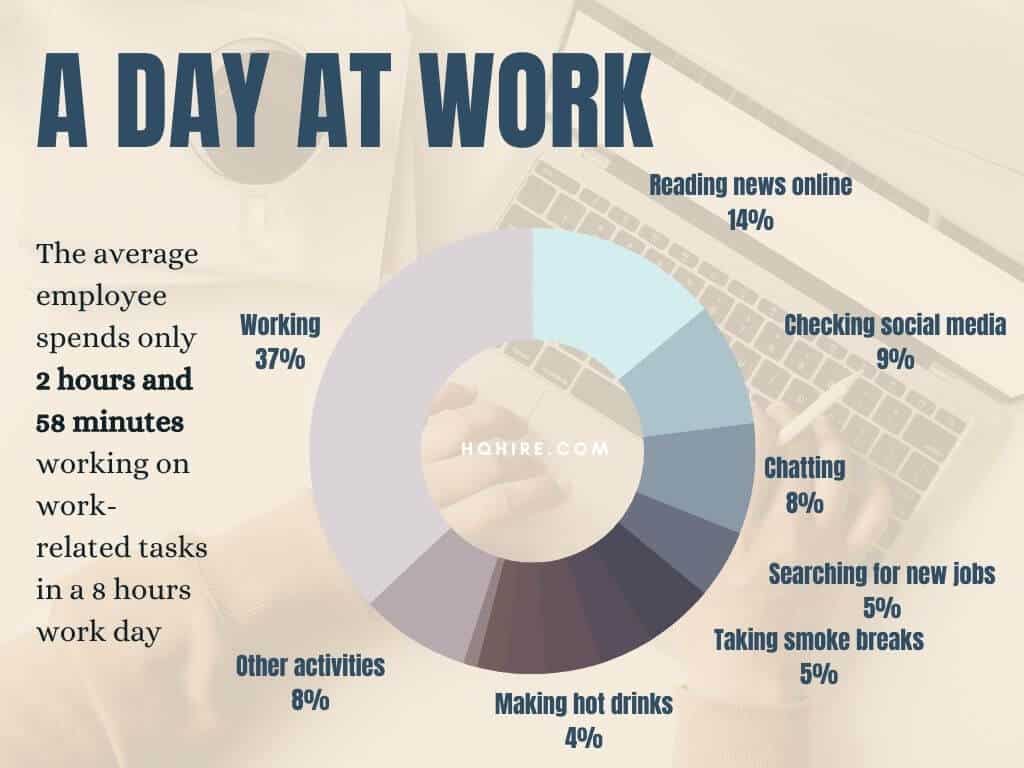For most people, weekends are the best time for you to relax and enjoy. But if you’re like many people, you don’t actually take all of your weekends off.
In fact, according to the U.S. Bureau of Labor Statistics (BLS) 1 in 3 people work on the weekends.
- 58% of multiple job holders work on weekends
- 31% of single job holders work on weekends
Why You Should Take Weekends Off
Taking weekends off and not thinking about work has many benefits including higher job satisfaction, less likely to get burnout, and allowing time to relax and recharge, which can lead to increased creativity and productivity at work.
Taking time to rest on the weekends can help improve your overall mental and physical health since it gives your body time to rest and your mind time to relax.
Here, we will look at a few good reasons why you should take your weekends off and stop thinking about work while you rest.
1. Improves work productivity
Employees who try to work on the weekends often find that they are less productive.
On the other hand, employees who take weekends off can recharge their batteries and come back with a new perspective and energy level, which can lead to greater success in their work.
According to a study, an average employee spends only 2 hours and 58 minutes working on work-related tasks during the 8 hours work day.

Simply work more effectively during your workday and you will probably be able to avoid working on the weekends.
2. Improves brain activity
Not working on the weekends, allows your brain to rest and relax which improves your problem-solving skills and enhances your creativity.
If you’re feeling not as productive during the week and struggling to concentrate on your work, take some time to reflect on how your schedule affects your work productivity.
It might be worth considering stopping working during the weekends to give your brain time to relax and rejuvenate while you rest.
3. Build a better relationship with your loved ones
Taking weekends off can help build a better relationship with people who are important to you.
Spending time with people you care about and love allows you to recharge and can come back to work refreshed. Additionally, not working on weekends can help you maintain a good work-life balance.
4. Live a healthier life
Giving yourself time to rest and relax during the weekends can lead to a healthier life.
Having your weekends off can give you more time for leisure activities, giving you opportunities to do the things you like and be with the people you want.
- Improve mental health by relaxing your mind.
- Improve physical health by resting your body.
- Improve spiritual health by being with people you love and care about.
When you get more rest on the weekends, you can improve your overall well-being and live a healthier life.
5. Helps you sleep better at night
A study by the National Sleep Foundation, 35.2% of people working in the United States sleep an average of 6.8 hours per night. That’s 15% less than recommended 7-9hours!
The main reason why people can’t sleep is because of the stress they have accumulated during the day.
If an employee wants to stop thinking about work at night, they need to have sufficient rest during the weekends.
Hitting the reset button and not working or thinking about work on the weekends helps people who are suffering from insomnia to get better sleep at night.
6. Protect your eyes
Most works are performed on laptops and technology which requires you to look at screens for prolonged hours.
Screen time can be bad for your eyesight. Working on screens all day can cause eyestrain, headaches, and blurred vision.
To avoid these problems, it’s important to take breaks from screens and to give your eyes a rest.
One way to do this is by not working on screens on the weekends and letting your eyes have sufficient rest.
Not working n the weekends will save your eyes and help you stay healthy.
7. Good for business
Working on the weekends increases overtime and work-related stress and issue which cost the company $385 billion per year.
Overwork and working on the weekends lead to issues such as:
- Health problems (impaired sleep, depression, impaired memory, heart diseases)
- Increase absenteeism
- High turnover rate
- Raising health insurance cost
Not working on the weekends and allowing the employees to have sufficient time to rest can reduce costs for the company.
Why Weekends Off Are Important?
Weekends off are important to stay mentally and physically healthy. Disconnecting yourself from work over the weekends can have many benefits such as increased work productivity, higher job satisfaction, and increased creativity and performance.
Although more companies are adopting the 4-day work week, the traditional 5-day work week (40 hours work week) is still recognized worldwide as the standard for full-time employment but, for many people, longer hours are the norm.
Almost half (47.5%) of all the people who are working in the sales-related professions work on the weekends and holidays.
According to data collected by the Organization for Economic Co-operation and Development (OECD), the United States ranks 10 in the world for being the most over-worked. Employees work an average of 1,786 hours per year, which equates to an average of 41.5 hours per week. Astonishingly, 11.1% of people work over 50 hours per week.
Working on the weekends and long working hours contribute to the lack of rest which leads to a decrease in work productivity.
Read Also:
Join over 11,000+ achievers who are committed to achieving their career goals!






